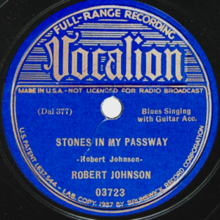
Robert Leroy Johnson was an American blues musician and songwriter. His landmark recordings in 1936 and 1937 display a combination of singing, guitar skills, and songwriting talent that has influenced later generations of musicians. Although his recording career spanned only seven months, he is recognized as a master of the blues, particularly the Delta blues style, and as one of the most influential musicians of the 20th century. The Rock and Roll Hall of Fame describes him as perhaps "the first ever rock star".

Highway 61 Revisited is the sixth studio album by the American singer-songwriter Bob Dylan, released on August 30, 1965, by Columbia Records. Dylan continued the musical approach of his previous album Bringing It All Back Home (1965), using rock musicians as his backing band on every track of the album in a further departure from his primarily acoustic folk sound, except for the closing track, the 11-minute ballad "Desolation Row". Critics have focused on the innovative way Dylan combined driving, blues-based music with the subtlety of poetry to create songs that captured the political and cultural climate of contemporary America. Author Michael Gray argued that, in an important sense, the 1960s "started" with this album.

"Like a Rolling Stone" is a song by the American singer-songwriter Bob Dylan, released on July 20, 1965, by Columbia Records. Its confrontational lyrics originated in an extended piece of verse Dylan wrote in June 1965, when he returned exhausted from a grueling tour of England. Dylan distilled this draft into four verses and a chorus. "Like a Rolling Stone" was recorded a few weeks later as part of the sessions for the forthcoming album Highway 61 Revisited.

"You Shook Me" is a 1962 blues song recorded by Chicago blues artist Muddy Waters. Willie Dixon wrote the lyrics and Earl Hooker provided the instrumental backing; the song features Waters' vocal in unison with Hooker's slide-guitar melody. "You Shook Me" became one of Muddy Waters' most successful early-1960s singles and has been interpreted by several blues and rock artists.

His Band and the Street Choir is the fourth studio album by Northern Irish singer-songwriter Van Morrison. It was released in November 1970 by Warner Bros. Records. Originally titled Virgo's Fool, Street Choir was renamed by Warner Bros. without Morrison's consent. Recording began in early 1970 with a demo session in a small church in Woodstock, New York. Morrison booked the A&R Studios on 46th Street in New York City in the second quarter of 1970 to produce two sessions of songs that were released on His Band and the Street Choir.
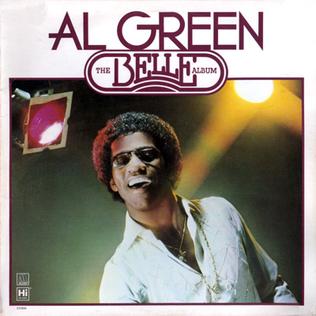
The Belle Album is the 12th studio album by soul musician Al Green. It is his first album recorded without longtime producer Willie Mitchell, owner of Green's former label, Hi Records. With Mitchell and his label Green also abandoned the famed Hi Rhythm Section, which had previously played a large part in defining Green's distinctive musical style. This also marks the first instance in which Green plays lead guitar on his records.

The Robert Johnson Songbook is an album by the British blues band the Peter Green Splinter Group, led by Peter Green. Released in 1998, this was their second album. Green was the founder of Fleetwood Mac and a member of that group from 1967–70, before a sporadic solo career during the late 1970s and early 1980s.
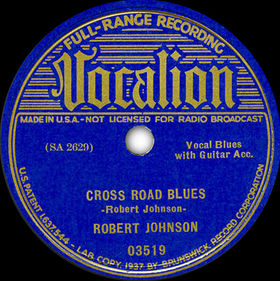
"Cross Road Blues" is a song written by the American blues artist Robert Johnson. He performed it solo with his vocal and acoustic slide guitar in the Delta blues style. The song has become part of the Robert Johnson mythology as referring to the place where he sold his soul to the Devil in exchange for musical genius. This is based largely on folklore of the American South that identifies a crossroads as the site where Faustian bargains can be made, as the lyrics do not contain any references to Satan.
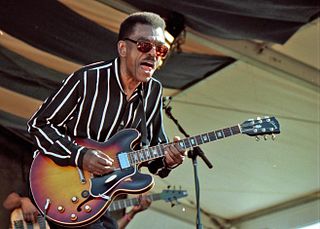
Sylvester Johnson was an American blues and soul singer, musician, songwriter and record producer. His most successful records included "Different Strokes" (1967), "Is It Because I'm Black" (1969) later covered by reggae artists Ken Boothe and Delroy Wilson, and "Take Me to the River" (1975), covered by Al Green and Talking Heads.

"Baby, Please Don't Go" is a traditional blues song that was popularized by Delta blues musician Big Joe Williams in 1935. Many cover versions followed, leading to its description as "one of the most played, arranged, and rearranged pieces in blues history" by French music historian Gérard Herzhaft.

"Dust My Broom" is a blues song originally recorded as "I Believe I'll Dust My Broom" by American blues artist Robert Johnson in 1936. It is a solo performance in the Delta blues-style with Johnson's vocal accompanied by his acoustic guitar. As with many of his songs, it is based on earlier blues songs, the earliest of which has been identified as "I Believe I'll Make a Change", recorded by the Sparks brothers as "Pinetop and Lindberg" in 1932. Johnson's guitar work features an early use of a boogie rhythm pattern, which is seen as a major innovation, as well as a repeating triplets figure.
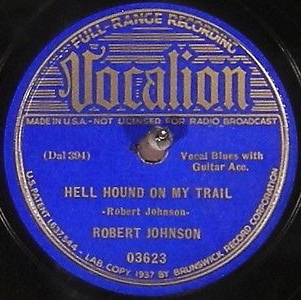
"Hellhound on My Trail" is a blues song recorded by Mississippi Delta bluesman Robert Johnson in June 1937 and released as a 78 rpm single on Vocalion Records that September. It was inspired by earlier blues songs and blues historian Ted Gioia describes it as one of Johnson's "best known and most admired performances—many would say it is his greatest".

"Blue Money" is a song written by Northern Irish singer-songwriter Van Morrison. It was the second of two Top Forty hits from his 1970 album, His Band and the Street Choir, reaching No. 23 on the US chart. The US single featured "Sweet Thing", from the album Astral Weeks, as the B-side. It was released as a single in the UK in June 1971 with a different B-side, "Call Me Up in Dreamland". The song became Morrison's third best selling single of the 1970s, remaining on the charts for three months.
"I Am a Lonesome Hobo" is a song written and recorded by Bob Dylan, released in 1967 on his eighth studio album, John Wesley Harding. The song was produced by Bob Johnston.

King of the Delta Blues Singers, Vol. II is a compilation album by American blues musician Robert Johnson, released in 1970 by Columbia Records. In 2003, the album was ranked number 424 on Rolling Stone magazine's list of the 500 greatest albums of all time.
"Sugar Mama" or "Sugar Mama Blues" is a blues standard. Called a "tautly powerful slow blues" by music journalist Charles Shaar Murray, it has been recorded by numerous artists, including early Chicago bluesmen Tampa Red, Sonny Boy Williamson I, and Tommy McClennan. John Lee Hooker and Howlin' Wolf later adapted "Sugar Mama" for electric blues and rock group Led Zeppelin reworked it during early recording sessions.

"Bottle Up and Go" or "Bottle It Up and Go" is a song that is a standard of the blues. Based on earlier songs, Delta bluesman Tommy McClennan recorded "Bottle It Up and Go" in 1939. The song has been interpreted and recorded by numerous artists, sometimes using alternate titles, such as "Step It Up and Go", "Shake It Up and Go", etc.

"Early Roman Kings" is a blues song written and performed by Bob Dylan that appears as the seventh track on his 2012 studio album Tempest. It was also released as the album's lead single through Columbia Records on August 7, 2012. Like much of Dylan's 21st-century output, he produced the song himself using the pseudonym Jack Frost.
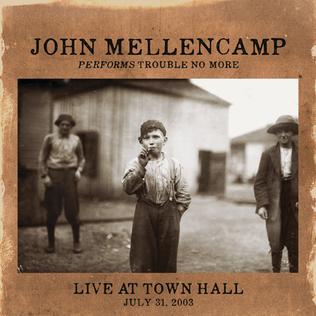
Performs Trouble No More Live at Town Hall is a live album by singer-songwriter John Mellencamp released on July 8, 2014 on Mercury Records. The album captures Mellencamp's live performance at Town Hall in New York City on July 31, 2003, in which he performed every track from his 2003 Trouble No More covers album as well as several other songs, including his own "Small Town", "Paper in Fire", and "Pink Houses".

2020 Visions is the sixth album by Stephen Dale Petit, released digitally on 12 June 2020 and on vinyl and CD on 25 September 2020.
